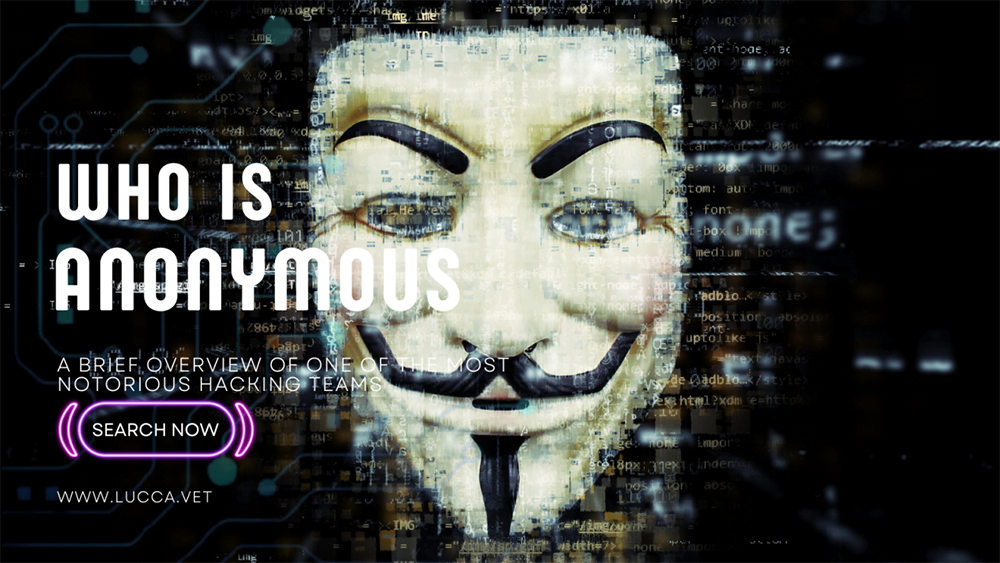
For nearly two decades, a loosely-affiliated group international network of activists and hacktivists has operated in the shadows under the name “anonymous”, making headlines for their high-profile attacks on governments, government institutions, religious institutions and corporate networks. The group operates with no central leadership or hierarchy, with members coming together to carry out their actions and then dispersing again. It is this decentralized structure that, over the years, has made it difficult for authorities to track and combat the group. The decentralization of roles and the mode of attack has also been the main reason why the group has been successful in engaging in a wide range of activities, from organizing protests around the world to using their hacking skills to bring down websites and steal sensitive data that expose their victims and advance the group’s social and political agenda.
History of Anonymous
As a decentralized international network of activists and hacktivists, the anonymous group originated from the imageboard 4chan in 2003. The group’s attention-grabbing antics and controversial stunts quickly gained traction with the public. By 2008, it had morphed into an activist and hacktivist group with its own social and political inclination.
One of the group’s earliest forms of hacktivism came in 2008, when 4chan users, led by Anonymous hacker Gregg Housh launched a coordinated cyberattack against the Church of Scientology. They used tactics such as denial of service (DDoS), prank phone calls and faxing the church’s black pages to waste their printer ink. The cyberattack, codenamed “Project Chanology,” was retaliation for what the hackers deemed as attempted censorship from the Church’s attempt to legally threaten Gawker after the media company posted a video with actor Tom Cruise speaking highly of the religious group. The cyberattacks triggered a series of worldwide protests against Scientology, with people showing support for the group by wearing the white and black Guy Fawkes masks depicting the 17th-century British insurrectionist. Today, these masks have become synonymous with the group as a symbol of resistance and defiance against authority.
After the 2008 Church of Scientology attacks, the group would go on to launch other attacks, including:
- The 2010 cyberattack, which resulted in leaked emails from the private intelligence firm HBGary Federal. The emails exposed the company’s plan to attack the group and its supporters.
- In 2011, the group was heavily involved in the Arab Spring protests. They were able to provide technical support and logistical assistance to activists across various participating countries.
- In 2012, they were also heavily involved in the Occupy Wall Street movement, where they supported and organised actions in various cities worldwide.
- In 2015, the group also targeted the ISIS terrorist organization with a series of attacks on its websites and social media accounts in response to a terrorist attack in Paris.
- The group was also involved heavily in the 2016 elections in the US and the UK Brexit referendum. However, during these elections, most of the group’s activities sparked controversy and debate on whether they had taken an active role in trying to manipulate the outcomes of democratic processes.
- In 2021, the group used its hacking skills to help victims of the Myanmar Coup. They also supported various causes, including the Covid-19 pandemic and support of women’s rights worldwide.
- This year, the group has primarily focused on the war in Russia, with most of its cyberattacks aimed at Russia. The group has claimed responsibility for various cyberattacks that have disabled Russian websites and leaked data from Russian government agencies. They have also been able to compromise state-run news outlets and corporations within Russia.
Controversies and Criticism of the Anonymous Group
The group’s history, actions and tactics have spared significant debate and criticism over the years. Some of these notable criticisms and controversies include:
- Disruptive techniques such as denial of services have, in the past, been termed unethical and sometimes potentially illegal. In some cases, these attacks have ended up causing significant damage to the websites and the targeted systems.
- The decentralized nature of the group has also come under scrutiny, especially when the actions taken by the group fall under the crime category. With the group operating with no centralized structure, when a crime occurs as a result of their actions, it is difficult to hold anyone accountable.
- Some of their attacks, especially on government and corporate networks, have been termed as counter-productive and harmful to causes they claim to support. For instance, an attack on a website that provides services to millions of users is likely to inconvenience them and possibly achieve the opposite of the group’s intentions.
- Their political involvement, including in elections, has also been termed by some as the group’s attempts to subvert the will of the people, silence dissenting voices and is a show of their heavy-handedness in dealing with social and political issues.
- The release of hacked emails and other personal data has also been termed by many as unethical, with some claiming the actions as being illegal. Critics argue that such actions violate the privacy of individuals hacked and can cause significant harm to them.
Overall, Anonymous is a complex and controversial group that has been involved in a wide range of political and social issues. The group’s decentralized and anonymous nature, as well as its tactics, have sparked significant debate and criticism. While some people view Anonymous as a powerful force for good, others see the group as dangerous and disruptive. The group’s actions and tactics continue to evolve and adapt, and it remains a significant and influential presence in the world of online activism and political protest.
– Clint Latham
